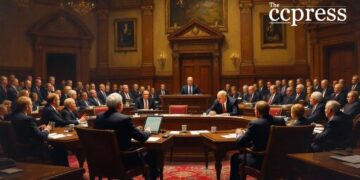- Tuberville reintroduces crypto investment bill amid regulatory debate.
- The proposal could diversify retirement investments.
- Potential increase in crypto adoption and market impact.

Senator Tommy Tuberville plans to reintroduce the Financial Freedom Act, aiming to allow Americans to invest their retirement funds in cryptocurrencies, as announced on April 1, 2025.
The proposal emphasizes financial independence for American investors, boosting cryptocurrency adoption in retirement planning. Immediate market reactions and broader financial implications remain to be seen.
Senator Tommy Tuberville, an Alabama Republican, is set to reintroduce the Financial Freedom Act, prioritizing American investors’ autonomy. The bill opposes regulatory limitations on cryptocurrency investments in retirement accounts. This follows his 2022 legislative attempt against restrictive guidelines.
“The Biden administration just hammered the American people with regulations and tomorrow I’m dropping a bill called the Financial Freedom Act. And it allows families and individuals to invest their retirement funds into crypto.” — Senator Tommy Tuberville
The proposed bill responds to the Biden administration’s regulatory agenda on cryptocurrencies. Tuberville criticizes these efforts, advocating for investment diversification to maintain individual choice. He reaffirmed America’s commitment to financial freedom, highlighting his opposition to overregulation.
Potential effects include widened retirement investment options and bolstered crypto market growth. The legislation might spur greater interest in digital assets, fostering a more inclusive financial environment. Tuberville’s move aligns with broader crypto-friendly trends within the U.S. government.
Analyses suggest structural shifts in the investment landscape if the bill succeeds. Existing regulatory frameworks may undergo significant revisions, impacting both crypto companies and retirement fund management. Adoption trends and market dynamics could transform, driven by increased institutional interest.


























